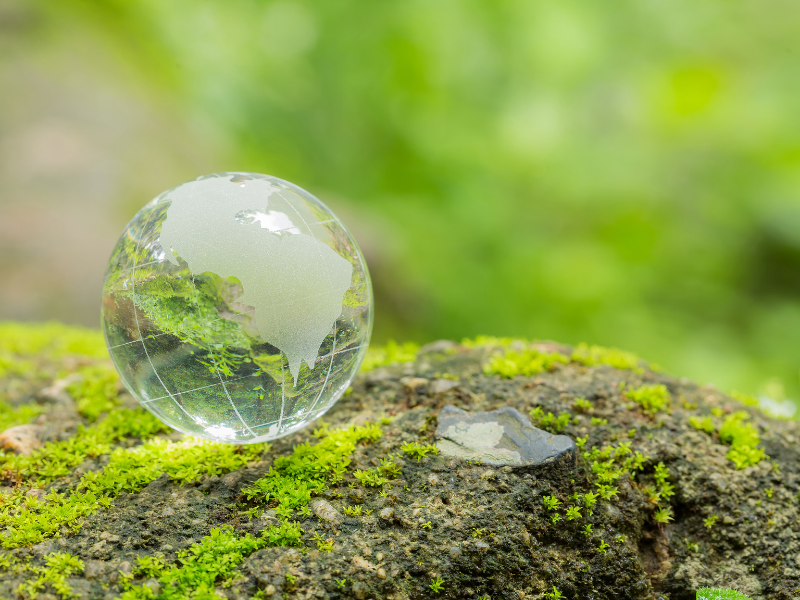In the quest for environmental wellness, the integration of renewable energy sources plays a pivotal role in reducing greenhouse gas emissions, mitigating climate change, and fostering sustainable development. Renewable energy refers to sources that are naturally replenished, such as solar power, wind energy, hydropower, geothermal energy, and bioenergy. By transitioning away from fossil fuels and embracing renewable energy, we can create a cleaner, healthier, and more sustainable future.
Solar power is one of the most abundant and readily available forms of renewable energy. By harnessing the sun’s energy through photovoltaic (PV) panels or concentrated solar power (CSP) systems, we can generate electricity without emitting harmful greenhouse gases. Solar energy can be utilized on both an individual and a large-scale basis, from rooftop solar panels on homes and businesses to expansive solar farms. Advancements in solar technology, coupled with decreasing costs, have made solar power an increasingly viable and attractive option for meeting energy needs.
Wind energy is another rapidly growing source of renewable power. Wind turbines convert the kinetic energy of wind into electricity, providing a clean alternative to fossil fuel-based electricity generation. Onshore and offshore wind farms have become prominent features of many landscapes around the world. Continuous innovations in wind turbine design and improved efficiency have significantly increased the capacity and reliability of wind power, contributing to its growing adoption as a sustainable energy solution.
Hydropower harnesses the energy of flowing or falling water to generate electricity. It is one of the oldest and most widely used renewable energy sources. Large-scale hydropower plants, such as dams, can produce significant amounts of clean electricity without greenhouse gas emissions. However, the construction of large dams can have ecological and social impacts, leading to the exploration of smaller-scale hydropower projects that minimize these adverse effects while still providing renewable energy benefits.

Geothermal energy utilizes heat from the Earth’s interior to generate electricity or for direct heating and cooling purposes. Geothermal power plants tap into the natural heat reservoirs beneath the Earth’s surface, typically near tectonic plate boundaries. Geothermal energy is a reliable and continuous source of renewable power, offering a sustainable alternative to fossil fuel-based heating and cooling systems. With ongoing research and technological advancements, geothermal energy has the potential to play a more significant role in our energy transition.
Bioenergy involves the conversion of organic materials, such as agricultural residues, forestry waste, and dedicated energy crops, into heat, electricity, or biofuels. Biomass power plants produce renewable energy by burning these organic materials or through anaerobic digestion processes that produce biogas. Sustainable practices, such as using waste materials or cultivating energy crops on marginal lands, can ensure that bioenergy remains a truly renewable and environmentally friendly option.
The integration of renewable energy sources requires supportive policies and investments in infrastructure. Governments can provide incentives, subsidies, and regulatory frameworks that encourage the development and adoption of renewable energy technologies. Investments in research and development can drive innovation and improve the efficiency and affordability of renewable energy systems. Collaboration between public and private sectors, as well as international cooperation, can accelerate the deployment of renewable energy solutions on a global scale.
Beyond electricity generation, electrification of other sectors, such as transportation and heating, with renewable energy sources is crucial for achieving a comprehensive energy transition. Electric vehicles, powered by clean electricity, reduce reliance on fossil fuels and contribute to lower emissions in the transportation sector. The use of electric heat pumps for heating and cooling purposes can significantly reduce energy consumption and greenhouse gas emissions in buildings.
In conclusion, integrating renewable energy sources is vital for achieving environmental wellness and creating a sustainable future. By harnessing the power of the sun, wind, water, Earth’s heat, and organic materials, we can power our societies without depleting finite resources or harming the environment. Governments, businesses, and individuals must work together to embrace renewable energy, invest in its development and infrastructure, and transition towards a low-carbon and sustainable energy system. Together, we can build a cleaner, greener, and more resilient world for present and future generations.

